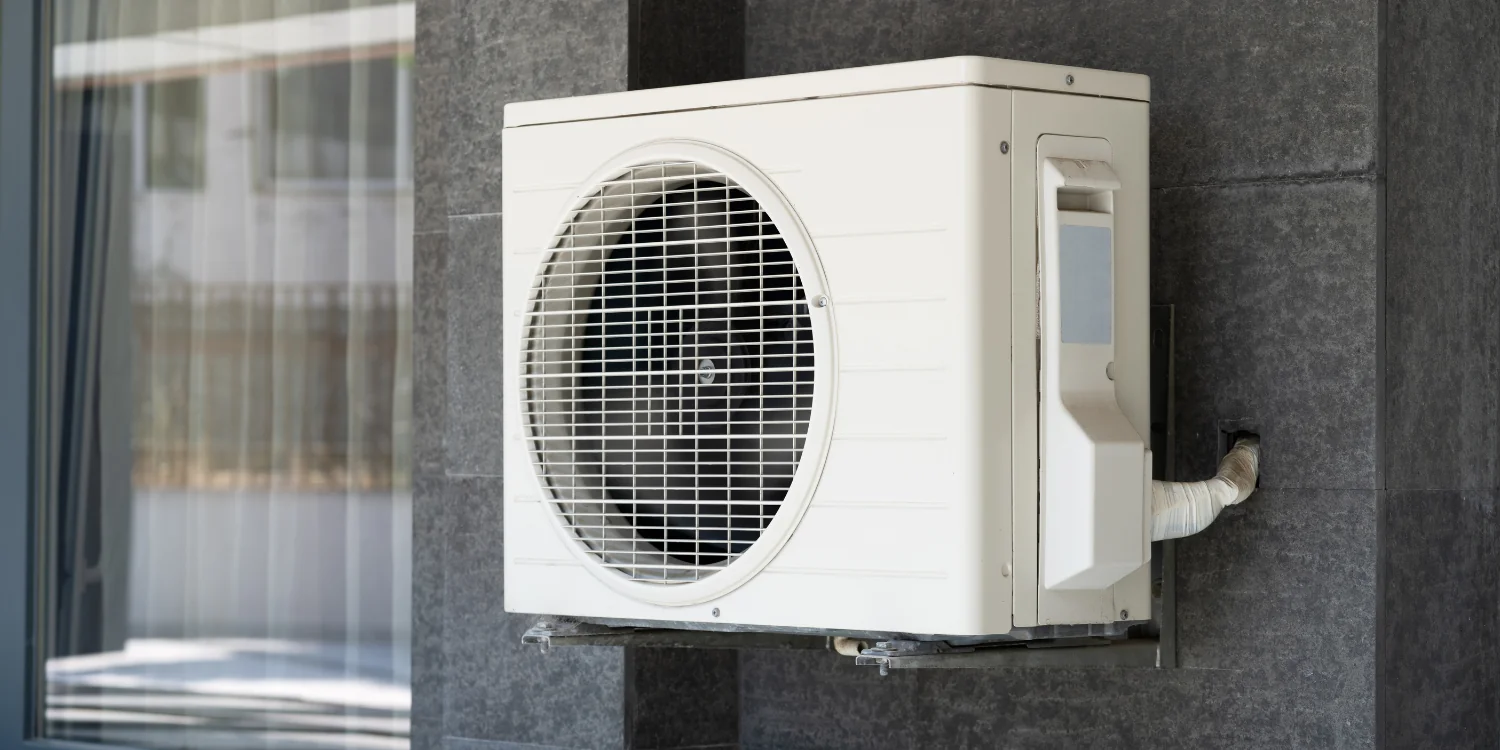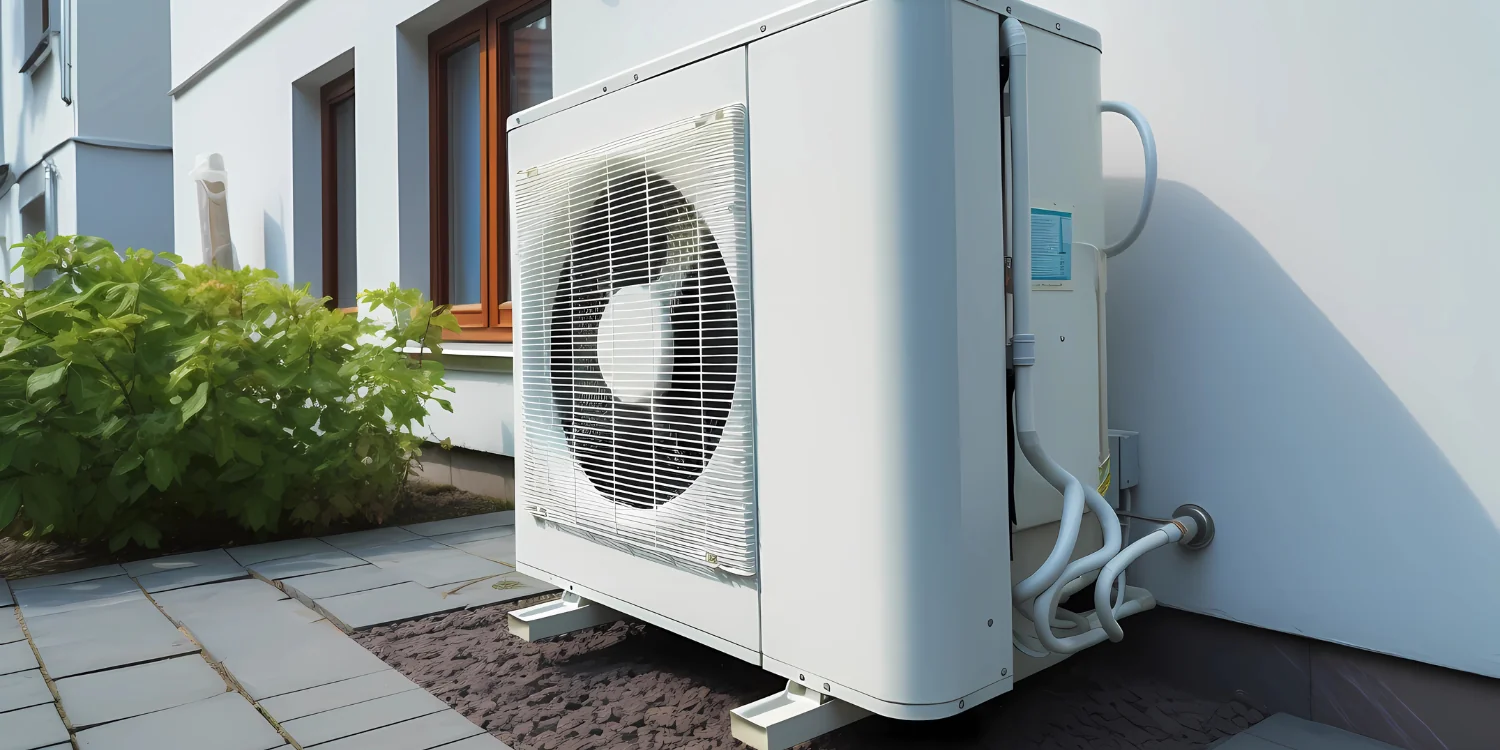
Looking for a smart way to heat and cool your home? Air source heat pumps (ASHPs) might be just what you need. Not only do they offer a more sustainable way to manage your home’s temperature, but they also come with a host of benefits that could save you money and improve your comfort. Let’s dive in and see how these systems work and what makes them a great choice for Canadian homeowners.
What are air source heat pumps, and how do they work?
Air source heat pumps are clever devices that move heat from outside to inside your home to warm it up and can reverse the process to cool your home in the summer. They’re incredibly efficient because they transfer heat rather than generate it, using little electricity and zero fossil fuels. This, in turn, dramatically reduces your carbon footprint.
Imagine getting efficient heating and cooling all year round, all from the same system. That’s the beauty of ASHPs.
What is a hybrid heating system, and can it save me money?
A hybrid heating system combines an ASHP with your existing heating system, usually a furnace, to provide a more efficient heating solution in the coldest weather. It uses the ASHP as the primary heat source and only switches to the furnace on extremely cold days when the ASHP might not be sufficient. This can lead to significant savings on your energy bills, making hybrid systems an attractive option for many Canadian households.
Note: Depending on where you live in Canada, you may not need a backup furnace at all.
What are the long-term benefits of installing an ASHP?
Installing an ASHP in your home can offer several long-term benefits, including lower energy bills due to its efficiency, reduced carbon emissions for a greener lifestyle, and year-round comfort with consistent heating and cooling (i.e. you only need one device for summer, winter and everything in between). In addition, ASHPs have a long lifespan and can provide reliable performance for years, making them a smart investment for the future.
How do air source heat pumps compare to other renewable heating solutions?
When compared to other renewable heating solutions, ASHPs stand out for their versatility, efficiency, and lower installation costs. They are simpler and less expensive to install than geothermal systems (also known as Ground Source Heat Pumps or GSHPs), and don’t require the extensive area needed to support the GSHP’s loop, or the space that solar panels demand. Plus, with advancements in compressor technology, ASHPs are becoming increasingly efficient and effective – even in colder climates – making them a viable option across Canada.
Are cold climate ASHPs effective on their own in the winter?
Yes, modern cold climate ASHPs are designed to work efficiently even in freezing temperatures. They have improved components and technologies that allow them to extract heat from the air even when it’s extremely cold outside, providing reliable heating throughout the winter months.
If you’re regularly looking at below -20°C on your weather app though, it’s best to “hire backup”—be it a furnace, space heaters or a gas fireplace.
What are the economic incentives for installing air source heat pumps in Canada?
Canada has historically offered various economic incentives for homeowners looking to install ASHPs, such as rebates, grants, and tax credits. Programs like the Canada Greener Homes Grant have been popular among homeowners to offset the initial cost of purchasing and installing an ASHP. Although this program has ended, you can still qualify for the Canada Greener Homes Loan, which can help cover the initial cost of purchasing and installing an ASHP.
Government (Federal and Provincial) programs are continuously evolving, so it is best to work with a local HVAC contractor who can take you through the best options for your home and family.
Learn more about your options when it comes to offsetting the cost of a heat pump by contacting your local ClimateCare!

How much does a heat pump cost in Ontario?
The cost of a heat pump in Ontario can vary depending on the type, size, and specific installation requirements of your home. Generally, air source heat pump installation costs range from $3,000 to $15,000, influenced by system type, home size, and specifics. Ductless systems typically start around $3,000, while ducted systems may vary depending on whether you have existing HVAC ducts and how large your space is.
When does the Canada Greener Homes grant end?
The Canada Greener Homes Grant program is no longer accepting new applications as of February 5, 2024. This decision comes due to the program’s higher than expected demand, with application amounts exceeding initial projections.
Although the Canada Greener Homes Grant has ended, the Canadian Government is starting the next phase of the Canada Greener Homes Initiative, which can see homeowners qualifying for up to a $40000 loan to help with retrofits.
Will the government of Canada offer new heat pump rebates?
The Government of Canada is working on the next phase of the Canada Greener Homes Initiative, aiming to help more Canadians save on their energy bills. This includes maintaining the Greener Homes Loan, offering up to $40,000 to help homeowners make energy-efficient upgrades, as well as the Oil to Heat Pump Affordability Grant (OHPA), designed to assist Canadians in transitioning from oil heating systems to more efficient heat pump solutions.
Learn more about the different programs available to homeowners in our latest blog “Heat Pump Affordability: 2024 Rebate Programs for Ontario Homeowners”.
Are heat pumps eligible for the Canada Greener Homes Loan?
Yes, many heat pumps are eligible for the Canada Greener Homes Loan, which offers financial support to Canadian homeowners making energy-efficient upgrades to their homes. This loan can cover a portion of the cost of purchasing and installing an ASHP, making it easier and more affordable to improve your home’s energy efficiency.
It is important to note that there are specific eligibility criteria that must be met. A list of approved equipment that meets or exceeds these criteria exists and is updated several times a year. It is best to work with your local HVAC contractor to ensure the heat pump you are considering is eligible for any rebate or loan programs you’re hoping to take advantage of.
Are there any heat pump rebates in Ontario?
Hydro One offers various financial assistance programs for income-eligible participants in Ontario. These initiatives can include upgrades to help reduce energy use and costs. We also recommend checking for rebates with your municipality, as many cities across the province offer region-specific programs.
Other programs and initiatives offered in Ontario are Enbridge’s Clean Home Heating Initiative, Oil to Heat Pump Affordability (OHPA) Program, and the IESO & EAP Electric Heat Programs.
Are air source heat pumps more cost-effective compared to traditional heating systems?
Yes, air-source heat pumps are generally more cost-effective than traditional heating systems over the long term. Their high efficiency means they use less energy to heat and cool your home, leading to lower utility bills. Plus, with incentives and rebates available, the initial investment can be more manageable than you might think.
What new heat pump technology should homeowners know about?
Recent advancements in heat pump technology include improved performance in colder climates, higher efficiency ratings, and smarter control systems that make them even more user-friendly and effective at managing home comfort.
Upgrade Your Home Heating Today with ClimateCare
Air source heat pumps offer an efficient, cost-effective, and environmentally friendly way to heat and cool your home. With the benefits of lower energy bills, increased comfort, and significant incentives available in Canada, it’s worth considering an ASHP for your home heating and cooling needs.
If you’re interested in learning more or getting started with an installation, find your local ClimateCare professional today for personalized advice and solutions.




